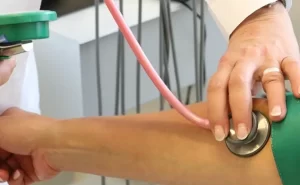Erectile Dysfunction Connected to Diabetes Mellitus (also known as DMED)
Erectile dysfunction (DMED) is a common problem that affects men who have diabetes. It is also known as diabetes-related erectile dysfunction. One of the defining characteristics of DMED is the inability to achieve or sustain an erection that is adequate for the sexual activity of the patient.
The disorder is brought on by damage to the nerves and blood arteries that supply the penis, which is brought on by high blood sugar levels that have been present for an extended period.
For a significant number of guys, DMED has the potential to significantly affect the quality of life they lead. It is possible to have feelings of frustration, worry, and even sadness if you are unable to ejaculate when engaging in sexual activity. Additionally, it has the potential to make a man feel insufficient or humiliated, which can hurt his general self-esteem and confidence.
Sexual intimacy is an essential component of many romantic partnerships.
These destructive emotions may spread to other aspects of his life, such as his professional life, social interactions, and fulfillment.
DMED can affect a man’s relationships and the quality of life he leads. The inability to ejaculate can result in feelings of disappointment, anger, and even resentment on the part of both individuals who are involved in a romantic relationship. Sexual intimacy is an essential component of many romantic partnerships.
In addition to causing further mental distress, this can put a strain on the partnership. Because the same blood veins that supply the penis also nourish the heart, it can also be an early warning sign of cardiovascular disease.
For this reason, it is necessary for men who have DMED to get medical assistance as soon as possible.
This condition can be treated in several different ways, including through the use of medication, modifications to one’s lifestyle, and surgical procedures. For the treatment of erectile dysfunction, several drugs, including sildenafil (Viagra), tadalafil (Cialis), and vardenafil (Levitra), are frequently given.
In conclusion, diabetic macular edema (DMED) is a common consequence of diabetes that has the potential to significantly interfere with the quality of life of a man.
Because these medications function by boosting the amount of blood that flows to the penis, they make it easier to obtain and keep an erection.
Alterations to one’s lifestyle, such as working out regularly, eating healthily, and losing weight, can also help improve DMED. By making these adjustments, you may be able to better manage your blood sugar levels, lower your blood pressure, and enhance your cardiovascular health overall.
Penile implants and vascular surgery are two examples of surgical procedures that may be required in some instances to treat patients with DMED. Most of the time, these treatments are reserved for situations where other therapeutic choices have been unsuccessful or are inappropriate.
In conclusion, diabetic macular edema (DMED) is a common consequence of diabetes that has the potential to significantly interfere with the quality of life of a man. Nevertheless, DMED can be effectively managed if it is treated promptly and with the appropriate treatment options. This will enable men to have a sexual life that is more satisfying and to experience an improvement in their overall health.













